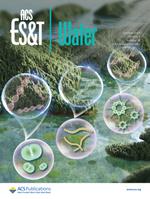Richard Compton
Professor of Chemistry
Phytoplankton in the sunlit surface of the ocean photosynthesise to generate half of our atmosphere’s oxygen and become edible energy for life in the ocean.
These microorganisms have been called “beacons of climate change”; phytoplankton are not farmed, fished or part of any human commercial activity, so any shift in their abundance or diversity is a direct signal of environmental pressures such as ocean acidification, rising temperatures, and deoxygenation.
The European Union’s Marine Strategy Framework Directive (MSFD) requires monitoring of plankton indicators. However, numerous different methods of monitoring and the high-cost of equipment has limited our ability to make regional-scale observations and none can yet monitor the ability to generate calcium carbonate.
The Oxford Martin Programme on Monitoring Ocean Ecosystems aims to develop and undertake preliminary field-testing on a prototype for a low-cost sensor technology to continuously count and monitor oceanic phytoplankton and the calcium carbonate shells that they produce as part of their lifecycle.
This sensor technology could be transformative in our understanding of the future global ocean carbon cycle and ecosystem status. Establishing a baseline of phytoplankton productivity and diversity could provide vital information for identifying environmental pressures, as well as providing an early warning system on developments like algal blooms, which can be harmful to fisheries and conservation efforts.

Fluoro-Electrochemistry Based Phytoplankton Bloom Detection and Enumeration; Field Validation of a New Sensor for Ocean Monitoring

Controlling crystallisation and dissolution of biogenic CaCO3via dissolved magnesium cations†

The solubility product controls the rate of calcite dissolution in pure water and seawater

Model-based evaluation of admission screening strategies for the detection and control of carbapenemase-producing Enterobacterales in the English hospital setting

A novel fluoro-electrochemical technique for classifying diverse marine nanophytoplankton

Does the life cycle stage matter for distinguishing phytoplankton via fluoro-electrochemical microscopy?
If you found this page useful, sign up to our monthly digest of the latest news and events
Subscribe